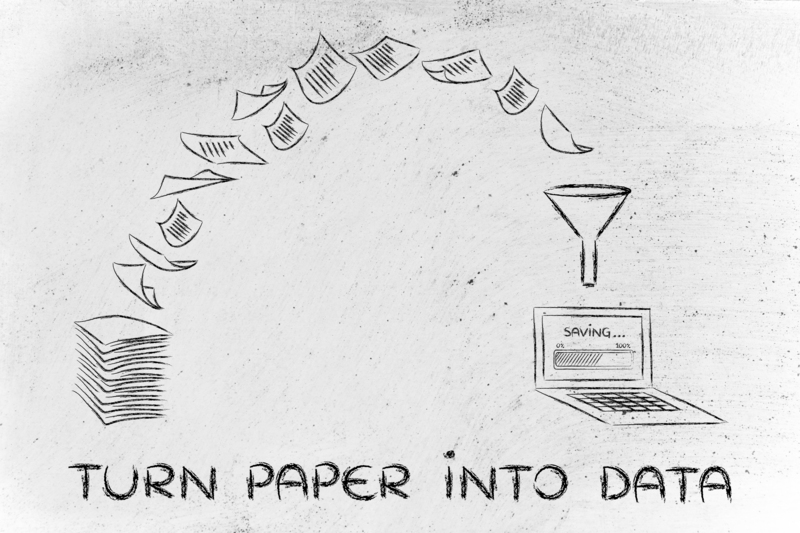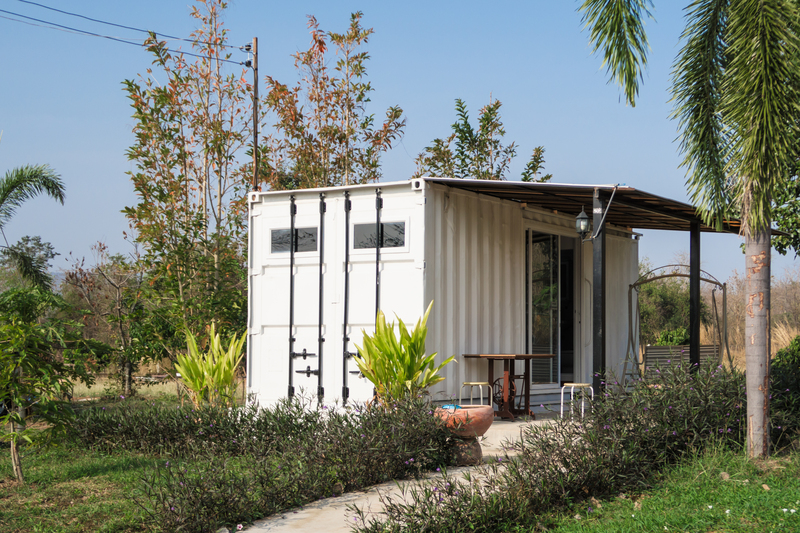De-cluttering Your Way to a Stress-Free Life
In our fast-paced modern world, the constant influx of possessions, information, and obligations can make our lives feel overwhelming and chaotic. One of the most effective ways to combat this overwhelm is by learning the art of de-cluttering. Not only does de-cluttering promote a tidy, welcoming home or workspace, but it also paves the way for greater mental clarity, productivity, and overall well-being. Welcome to your in-depth guide on de-cluttering your way to a stress-free life.

Why De-cluttering Matters: The Surprising Benefits
De-cluttering is much more than just getting rid of excess stuff. It's a holistic approach that touches on your emotional, physical, and mental well-being. If you're considering decluttering your life for less stress, here are some compelling benefits to motivate your journey:
- Reduced anxiety: A cluttered environment often induces feelings of stress, while a tidy space leads to calmness and serenity.
- Improved focus: Decluttering removes visual distractions, sharpening your concentration and boosting productivity.
- Enhanced creativity: A clean space invites inspiration and stimulates fresh ideas.
- Better health: Fewer objects collecting dust means improved air quality and less cleaning stress.
- Greater sense of control: Organizing your surroundings can make you feel empowered and in charge of your life.
- Positive mood shifts: Studies show that organized spaces contribute to better moods and increased happiness.
The Science Behind De-cluttering and Mental Health
Research consistently demonstrates the link between clutter and elevated cortisol levels (the stress hormone). When your environment is chaotic, your mind often mirrors that disarray, making relaxation difficult. According to a study from UCLA, families with higher levels of home clutter also reported increased fatigue and depressed moods. By decluttering for stress relief, you're also giving yourself a psychological advantage, fostering tranquility and well-being.
Where Does Clutter Come From?
Before you start organizing and decluttering for a peaceful life, it's crucial to identify how clutter accumulates in the first place. Understanding the source ensures you can prevent clutter from recurring:
- Impulse buying: Unplanned shopping trips often result in acquiring unnecessary possessions.
- Sentimental attachment: Holding onto items for emotional reasons, even when they're no longer needed.
- Lack of organization: Without practical systems, belongings pile up chaotically.
- Postponing decisions: Avoiding the hard choice of what to keep or let go results in accumulation.
- Busy lifestyles: Not enough time to regularly sort and maintain order in your personal space.
Step-by-Step Guide: De-cluttering Your Way to a Stress-Free Life
1. Set Clear Goals
De-cluttering for a stress-free lifestyle begins with defining your objectives. Are you aiming to create a minimalist home, organize a specific room, or simply clear mental space? Write down your goals for each area--this will motivate you to push through tough spots and celebrate progress.
2. Start Small, Start Now
Feeling overwhelmed? Begin with small, manageable spaces: a drawer, a shelf, or a desk. Completing one area gives you the confidence to move forward, making larger projects less daunting.
3. Sort Items: Keep, Donate, Discard
Effective de-cluttering revolves around categorizing your belongings. Use these piles:
- Keep: Items you use regularly or truly love.
- Donate: Things in good condition that no longer serve you but could benefit someone else.
- Discard: Broken, expired, or unusable items.
*Tip*: If an item hasn't been used or worn in over a year, chances are you can let it go.
4. Organize What's Left
Once you've edited your possessions, organizing for a clutter-free, stress-free life involves assigning every item a designated place. Use storage bins, shelves, drawer dividers, and labels to keep everything tidy and accessible.
5. Set Routines to Prevent Re-cluttering
De-cluttering isn't a one-time event but a continuous process. Here are some strategies for maintaining a tidy space:
- Every time you bring in something new, remove one old item (the one-in, one-out rule).
- Incorporate regular mini-decluttering sessions weekly or monthly.
- Handle paperwork immediately--sort, file, or recycle rather than let piles grow.
- Encourage family members or housemates to participate in keeping shared areas clutter-free.
Room-by-Room De-cluttering Tips
De-cluttering your living spaces room by room can make the process systematic and less overwhelming.
De-cluttering the Kitchen
- Start with the refrigerator and pantry, discarding expired items.
- Reduce countertop items to essentials only.
- Organize cabinets using baskets and shelf risers to maximize space.
- Donate unused appliances and duplicate utensils.
Organizing the Bedroom
- Sort clothes into keep, donate, or discard piles.
- Use under-bed storage for seasonal items.
- Keep bedside tables free of clutter--one book, a lamp, and an alarm clock is ideal.
Clearing the Home Office
- Digitize important documents to reduce paper overflow.
- File or shred unnecessary paperwork weekly.
- Organize cords, chargers, and devices using cable organizers.
- Keep only essential supplies in your work area for a cleaner look.
De-cluttering the Living Room
- Arrange furniture for easy movement and clear traffic paths.
- Limit decorative objects to a few statement pieces.
- Store remote controls, magazines, and blankets in baskets or ottomans with storage.
The Emotional Side of De-cluttering
Letting go of possessions can be emotionally challenging. Many of us form sentimental attachments to our belongings, making it hard to say goodbye even when they no longer serve a purpose. Here are some strategies to ease the emotional impact:
- Take photos: Preserve memories of special items by photographing them before letting go.
- Journal the story: Write down what made the item meaningful and how you're ready to move on.
- Involve a friend: Having support can provide an objective perspective and encouragement.
- Remember your why: Keep your de-cluttering goals in mind to stay focused on the benefits.
By consciously addressing the emotional side of decluttering, you ensure a smoother experience and lasting results.
Decluttering for Digital Wellness
Clutter isn't limited to your physical space. In our digital age, mental overload from disorganized devices is common. Here's how to de-clutter your digital life for less stress:
- Unsubscribe from emails you no longer read.
- Organize desktop files into clearly labeled folders.
- Delete unused apps or programs from your devices.
- Regularly back up photos and important documents to the cloud.
A streamlined digital environment helps you feel less overwhelmed and more in control of your daily tasks.
Mindful Consumption: The Key to Staying Clutter-Free
De-cluttering is only truly effective if you change your habits moving forward. Adopting a mindful approach to possessions ensures that your spaces remain organized and your life stays stress-free. Here are some principles of mindful consumption:
- Pause before purchasing: Ask yourself whether you genuinely need or love the item.
- Favor quality over quantity: Durable, functional possessions do more with less.
- Opt for multi-purpose items: Maximize space and functionality.
- Reflect on values: Purchase things that align with your goals and aspirations.
Common Mistakes to Avoid in Your Decluttering Journey
Even the most motivated individuals can encounter setbacks. Here are some things to watch out for as you strive for a clutter-free, stress-free life:
- Trying to do everything at once: Tackle projects in manageable segments to avoid burnout.
- Perfectionism: Aim for progress, not perfection. Any step toward less clutter is beneficial.
- Holding onto "someday" items: Be honest about what you use versus what you hope to use.
- Ignoring the digital realm: Don't forget your inbox, files, and social media can get cluttered, too.
Avoiding these pitfalls will help you achieve sustainable results and a genuinely peaceful environment.

Building Lasting Habits for a Clutter-Free, Stress-Free Life
De-cluttering your way to a stress-free life is less about dramatic clean-outs and more about cultivating lasting habits. Consider these routines:
- Set aside 10 minutes a day to tidy a small area.
- Do a 5-item donation challenge each week with family.
- Review your possessions seasonally to keep only what adds value.
- Reward yourself after milestone achievements--treat yourself to an outing, not another "thing."
Consistency is key: Small daily actions create a significant impact over time.
Your De-cluttered Life: The Path to Peace of Mind
Imagine walking into your home each day and being greeted by a sense of calm and order; your mind free from the nagging "to-do"s created by piles and mess. By decluttering for stress relief and embracing organization, you empower yourself to focus on what matters most--personal growth, relationships, and self-care. Stress less, live more, and make space for joy with each item you release.
Ready to De-clutter Your Life for Less Stress?
Start today. Whether you're clearing your workspace, your wardrobe, or your digital world, each step you take will bring you closer to a tranquil, stress-free lifestyle. Remember, the journey toward minimalism and mindfulness is ongoing--progress, not perfection, is the goal.
De-cluttering your way to a stress-free life is a gift you give to yourself--one room, one shelf, one moment at a time.